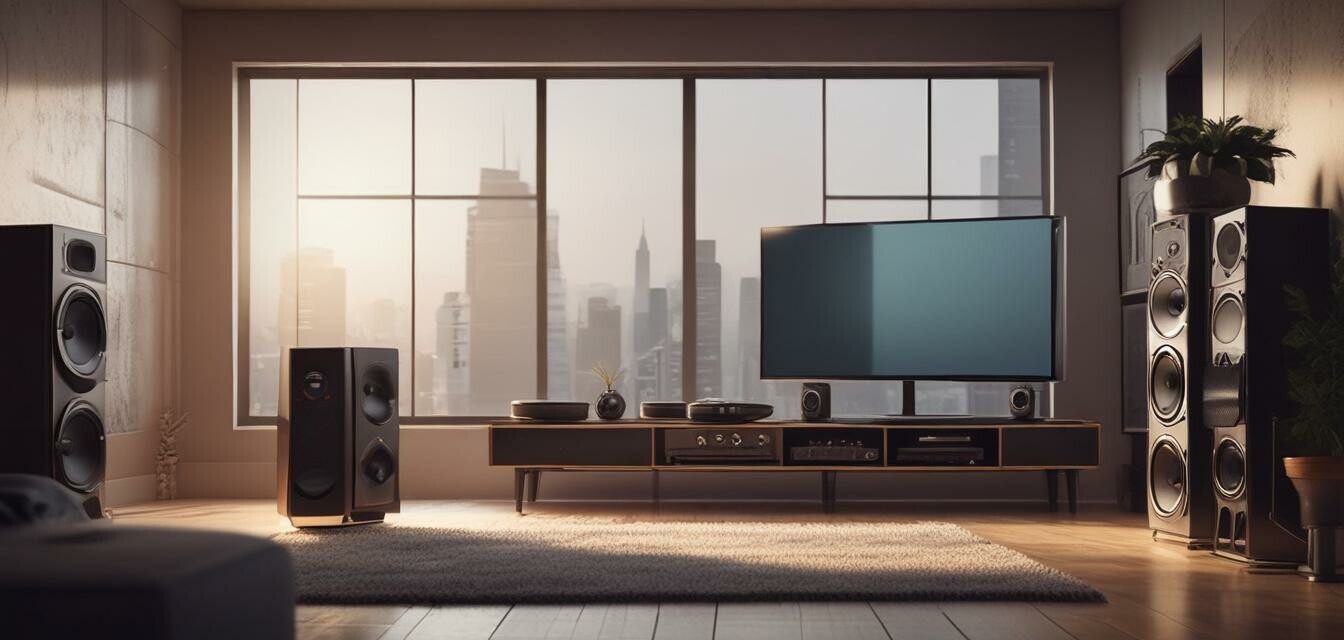
Future-Proofing Your Audio System
Key Takeaways
- Flexibility is key: Choose speakers and equipment that allow for upgrades and compatibility with new technologies.
- Consider universal connectivity: Look for devices that support various formats like Bluetooth, Wi-Fi, and HDMI.
- Quality over quantity: Invest in high-quality audio systems that provide durability and performance.
- Stay informed: Keep up with industry trends to make educated purchasing decisions.
As technology continues to evolve at an unprecedented pace, purchasing audio equipment that stands the test of time can be a challenge. Future-proofing your audio system not only protects your investment but also ensures that you can enjoy seamless upgrades in the long run. In this article, we will share valuable tips and insights on how to choose speakers and audio equipment that remain relevant in the fast-evolving tech landscape.
Understand Your Needs
The first step in future-proofing your audio system is to understand your personal needs and audio preferences. Whether you're a casual listener, a movie buff, or a serious audiophile, identifying how you will use your audio system is crucial. Think about the following:
- What type of content do you listen to most (music, movies, gaming)?
- What is your preferred sound quality? (studio-grade, regular, etc.)
- Where will the system be used? (living room, home theater, outdoor space)
Choose Versatile Speakers
Pick speakers that not only meet your current needs but also offer flexibility for future expansions. Consider investing in:
- Bluetooth speakers: Perfect for portable use and easily connectable to various devices.
- Bookshelf speakers: Great for smaller spaces and can deliver impressive sound quality.
- Home theater systems: These can provide the ultimate audio experience for movie enthusiasts.
Connectivity Options
Future-proofing also means ensuring that your speakers can connect with a variety of devices. Look for features such as:
| Connectivity Type | Description |
|---|---|
| Bluetooth | Allows wireless streaming from a smartphone or tablet. |
| Wi-Fi | Enables easier updates and connections to smart home devices. |
| HDMI | A common connection type for home theater systems for high-quality audio. |
Invest in Quality
When it comes to audio systems, investing in quality over quantity is essential. High-quality speakers and equipment generally last longer, perform better, and require fewer upgrades. Consider these tips:
- Look for reputable brands known for quality and durability.
- Don’t be afraid to read reviews or comparisons for insights.
- Test the equipment in-store, if possible, to ensure it meets your expectations.
Keep an Eye on Trends
Stay informed about industry developments to improve your audio setup accordingly. This could involve:
- Following news on upcoming speaker technologies.
- Understanding the shift towards streaming services that may require new formats.
- Exploring new audio formats that enhance sound quality (like Dolby Atmos).
Pros
- Ensures compatibility with future devices.
- Increases the longevity of your audio equipment.
- Enables enhancements to sound quality as technology advances.
Cons
- Upfront costs may be higher than basic options.
- Required research may be overwhelming for some first-time buyers.
Conclusion
Future-proofing your audio system is not just about buying the latest technology—it's about investing in a setup that will adapt and grow with your needs. By understanding your audio preferences, choosing versatile speakers, and keeping an eye on the latest trends, you can ensure that your audio system remains relevant and high-performing for years to come.
Further Reading
To explore more about different types of speakers, check out our categories: